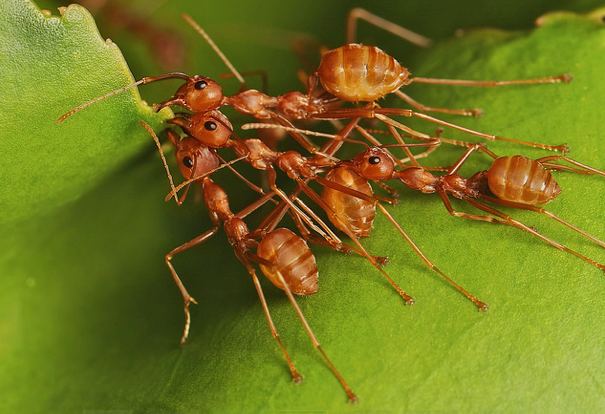While eating insects may seem like something people only do on accident, Danish entomologist Arnold van Huis said there are myriad benefits, for both sustainability and human health.
Van Huis said that there are both benefits and challenges of insect consumption on a large scale — or, as experts call eating insects, “entomophagy.” While insects are already a staple in cultures around the world, in the U.S., there’s stigma attached to eating them. He takes issue with the term entomophagy itself, he said, because it helps perpetuate these attitudes that it’s unnatural or gross.
“I personally don’t like the word, it is a kind of western notion of a very strange habit of people in the tropics who eat insects,” van Huis said. “And for me, eating insects is just normal food.”
There are several benefits to eating insects, he said. Insects are packed with protein and they take very little food, space and water to rear — unlike cattle, poultry and other meat products. This could make insects a far more sustainable alternative to traditional sources of animal protein.
He said they’ve found about 2,100 species worldwide that are safe to eat. One of the species with the most potential is the Black Soldier fly — high in fat and full of protein.
“This is the golden egg,” he said. “Everyone is concentrating on the Black Soldier fly.”
The soldier fly isn’t susceptible to diseases in rearing and contains a protein called chitin, which aids in digestion and can boost immune system functioning.
But rearing insects at a large scale comes with challenges, he said.
“You need huge facilities to produce those insects,” he said.
UW project investigates sustainability potential of eating insects
And these facilities face unique challenges. Because insects are often vectors for pathogens and disease, he said everything in a facility must be clean and hygienic. Plus, insects have different life cycles and stages. Some go through metamorphosis, unlike mammals.
While there are numerous small farms across the world producing insects, larger companies are beginning to shape the industry. With economic pressures, a large, efficient operation becomes necessary, he said.
“The problem is the price,” he said. “You really have to get the price down. So you have to automate the whole system.”
Currently, one of the most important tasks is to make people aware of the benefits of entomophagy and work to decrease the stigma surrounding it. He mentioned several conferences where scientists and experts come together to work towards solutions. Entomophagists have also started a journal dedicated to publishing studies on insects as food, and the number of books written on the topic is increasing every year.
Several organizations, including the Insect Protein Association Australia, the Asian Food and Feed Insect Association and the International Platform of Insects for Food and Feed, are also working to bring insects to national and global attention. If nations across the globe could band together and create a worldwide coalition, he said they could come up with even more solutions.
“I think this is really important to bring everyone together, this interdisciplinary research,” he said.



















